Resilience, Community and Spirituality
Satish Kumar, Thọ Hà Vĩnh and Rehena Harilall
The following is an excerpt of the panel conversation on the theme of Resilience, Community, and Spirituality that took place in June 2023, during the “Love is Freedom” Earth Holder Retreat. Our three panelists were:
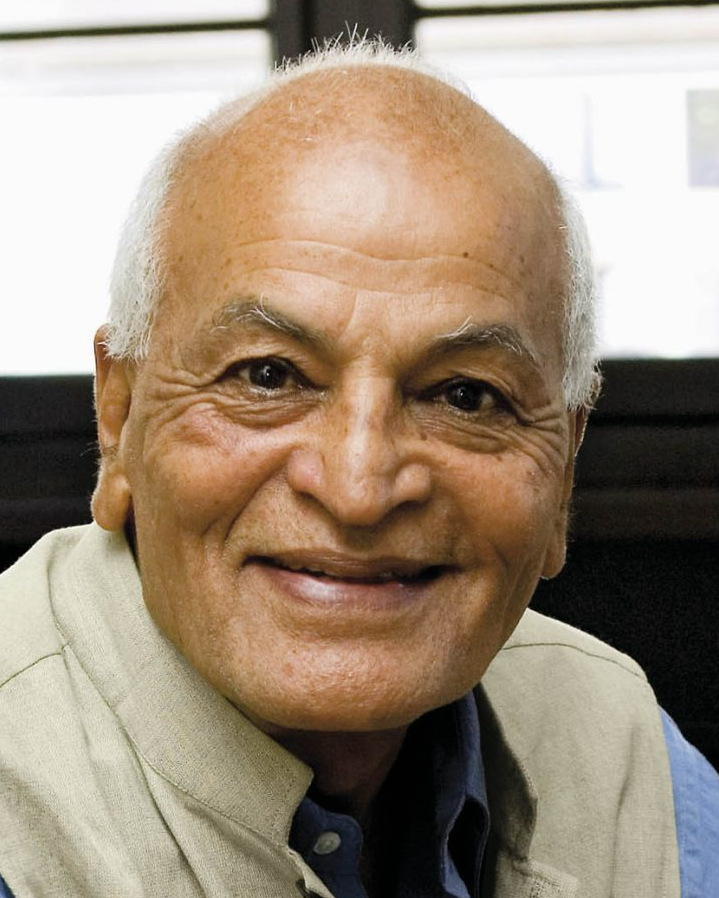
Satish Kumar is the founder of Schumacher College for ecological studies. In 1962 he went on a peace walk of over 8,000 miles for two and a half years, from New Delhi to Moscow, Paris, London, and Washington, D.C. He is the author of the recently published book, titled Radical Love.
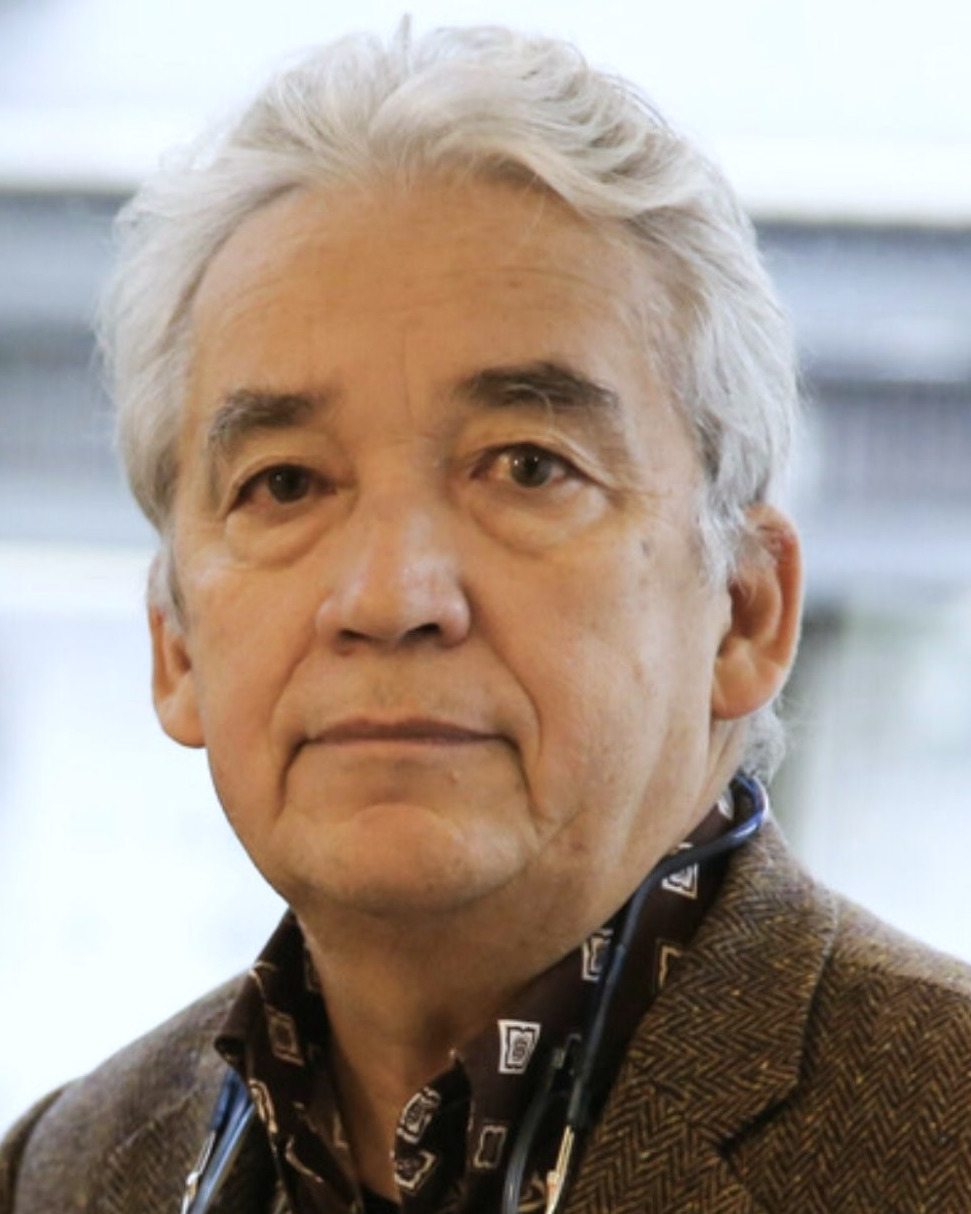
Tho Ha Vinh received the Dharma lamp transmission from Thay in 2001. He was the former program director of Bhutan’s Gross National Happiness Center and is the author of the book, titled A Culture of Happiness.
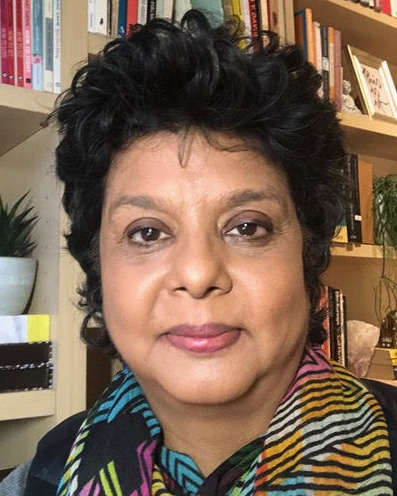
Rehena Harilall joined the Order of Interbeing in 2016. She is a member of the Heart of London sangha and Colors of Compassion sangha, and actively brings racial justice and climate justice together. She founded “Buddhists across Traditions,” a BIPOC-centered collective in the UK in 2019.
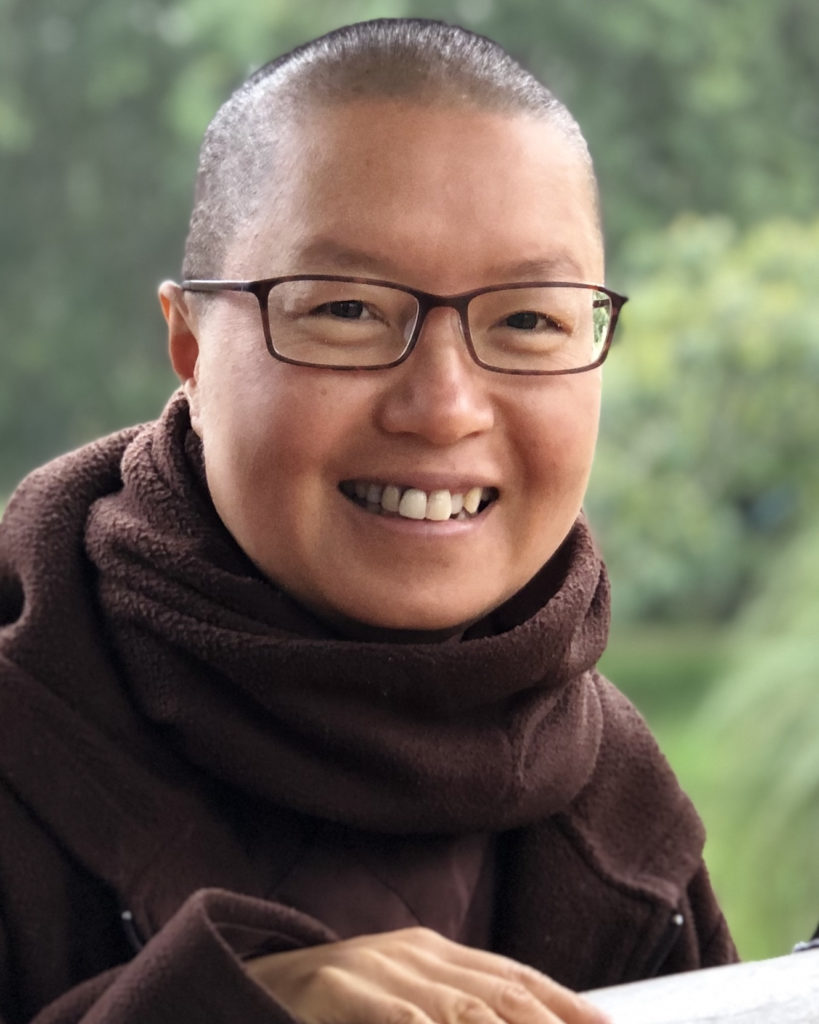
Sr. Lang Nghiem (facilitator): In our current global state, there is much despair, anger, blame, and disappointment. How do you continue to act from a place of love?
Satish Kumar: First of all, I always ask, what is the impact of anger, blame, fear, anxiety on myself? If I’m angry with someone, what is the impact on myself? Acknowledging that it makes my whole being upset, uncomfortable and unhappy, I can ask, is that what I want to choose?
Love begins with loving yourself, to be your true self, recognizing yourself as a spiritual being, capable of loving. Loving yourself is not egoistic, but the starting point to learn to protect yourself. In my childhood, I was a Jain monk for nine years. Everyday, I trained to look at the world with a positive mind, to see how I can serve the world, and to learn to handle feelings of anger, fear, doubt and a judgemental mind.
I recently wrote a book, titled Radical Love. There are two kinds of love: moderate love and radical love. Moderate love is to love somebody who loves you back, and with whom you agree. That’s a good love and necessary, but radical love goes a step further. Radical love is unconditional — you love without expecting anything in return. I love, because love is the right way to follow. Radical love is also unilateral, you love even those who don’t love you back, or you don’t agree with, even those you dislike.
It was a great privilege and honor for me to meet Martin Luther King, Jr. when I was walking from India to America. He told me, “I am against racism, I am against injustice, but I don’t hate anyone.” He said hate is too heavy a burden to carry, because anger comes and goes, but hatred lingers. When I saw that a man, who was such a great radical activist, fighting against injustice and racial discrimination, could still be an embodiment of love; that was a great example for me. From then on, I started to practice radical love. Hatred, anger and fear have created wars. We had an Afghanistan war, an Iraq war, a Vietnam War, the first and second World War all based on hatred. We have institutionalized hatred.
I think we have to find our way and answer in love, and learn to love even people you may not like. Hatred cannot transform. Hatred can kill, but love can transform.
Hatred starts when you see others as separate from you, but we are not separate, we are all “inter-beings." There is no separation between humans and nature, between Buddhists and Christians, between blacks and whites, women and men, old and young, past and present. It’s all a continuum. It’s all relationship. Recognizing that eternal truth, we can follow the path of love.
Sr. Lang Nghiem: How do you prevent yourself from falling into anger, despair, blame or hatred?
Rehena Harilall: I think I can’t prevent anger. It is an emotion that arises and falls away. My journey started off as an activist, who fought for justice from a place of anger. Practicing mindfulness, I saw that anger can be a source of wisdom, helping me discern what is being activated in my body. What is causing me to react in this way?
Thay talks about taking care of anger. What is the impact if I respond with this type of emotion? Am I perpetuating the same energy of division, anger, and hatred that someone else has acted on me? We can practice loving, like a little muscle. If we practice every day, it increases. Mindfulness helps me to listen to who I am, to see who I am, to understand who I am. Love comes from understanding.
The journey to love outside is also the journey inside. Suppose there is a person whose views are the most diametrically opposed to mine. That person is still a human being, who is connected to me, whose life has shaped their suffering and experience, who is trying to do things in a way that they believe is the right way. I like to see and separate an action from an individual, because we all have anger, and also the capacity to love and to be compassionate. The important thing is, what do I do every day to increase my compassion and joy, to open my heart to everyone? I think to love is to be in service. If compassion is overflowing, if it comes with the right intention, there is no compassion fatigue.
Sr. Lang Nghiem: Thank you for explaining how you practice with anger. When we act from a place of love, rather than anger, we in fact process the anger; when we acknowledge it, when we don’t suppress it, it becomes the source of our love and compassion.
Tho, what sustains you, and what keeps you from engagement fatigue?
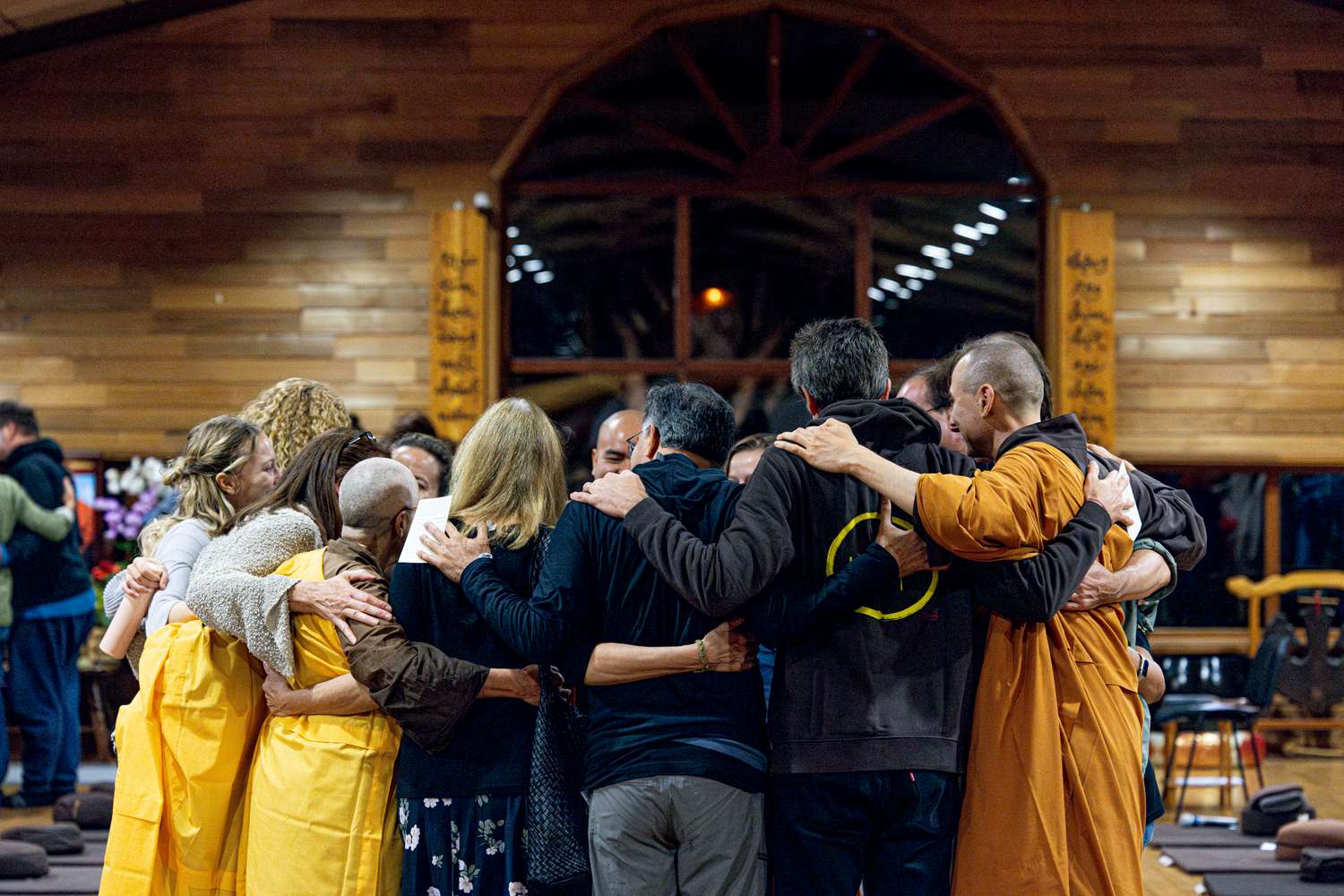
Tho Ha Vinh: The Four Noble Truths can be our starting point. The root cause of suffering is separation. Thay has emphasized inter-being as the core of his teaching.
Satish explained beautifully how true, radical love is unconditional—it is not just an emotion, or a matter of preference. If we touch what is the deepest in us, our fundamental humanity or spirit, then we can also become aware that it’s present in every single other being that we meet, human beings and all other life forms. When you truly love, you become one with the object of your love, overcoming duality and separation, and transforming loneliness.
Love needs to be based on understanding. Rehena described it beautifully. Even someone whose ideas, perceptions or viewpoints are radically different from mine, if I make the effort to understand them, there is no duality, no feeling of antipathy, anger, etc. What sustains me in being engaged without engagement fatigue is the deep conviction of the non-duality between what lives in me and in the world.
It’s easy to blame economic or political systems. However these systems are but an expression of our collective consciousness; the way we as humans think, feel, act and relate. This is why, by transforming our own consciousness, however modest, we can help transform those systems. Mindfulness empowers us to develop kindness, compassion, generosity and inclusiveness, giving us tremendous strength.
Sr. Lang Nghiem: Some activists have doubts about the role of spirituality in systems change. Where do you see the intersection between personal transformation and systems change?
Satish Kumar: At Schumacher College we say that inner transformation and outer transformation are two sides of the same coin. You cannot have outer transformation, systems change, political change, economic change or social justice without inner transformation, namely cultivating qualities like compassion, love, kindness, generosity and understanding.
There’s no duality. When we cultivate that cosmic mind, we start to think of the whole cosmos as my country, the whole Earth as my home. “Eco” means home. Humans are as much nature as trees, mountains and forests. Before I’m a Buddhist, Christian, or any other religion, love is my religion. When you have that kind of understanding, you can bring social justice, build equity, and work for economic justice. There’s no separation between me and the world. Therefore, changing the world and changing myself are two aspects of one single reality.
Rehena Harilall: I grew up in apartheid South Africa. From the time I was four years old, my entire life was focused on social justice. I learned that as activists, we need to look at the energy we are bringing. Are we using the same energy that has been used to create the suppression, the separation, to change the systems outside of ourselves? If so, we are just replacing one system with another, we’re not really changing anything, because there is still an attachment to my view as being the right view, the only view, and the dominant view. Recognizing this has been most important in my own activist career.
Coming to this tradition has helped me understand that I was clinging to my ego, that I thought getting it my way is the right way. I have learnt to relinquish some of that. When we are engaging in systems social change, we’re doing it in a way that is compassionate, rather than destructive. Part of changing a system is to create a working alternative, with the right energy and intention.
Despair comes from thinking, “Nothing I’m doing is making a difference. This is inevitable.” In fact, every little bit actually makes a difference. Every breath, every step, every action does make a difference. Realizing this generates hope, because there is always something I can do directly in the present moment.
Sr. Lang Nghiem: While bringing the ethical component into new narratives, have you met with resistance and how do you navigate around that?
Satish Kumar: Crucially, inner transformation also includes changing our world view. At the moment, our world view is that humans are above nature. Therefore, we can do to nature what we like and as we like. Nature is considered only a resource for the economy, it is only a means to an end. How we see nature is an ethical question. We need to be prepared to change this worldview. Nature has its own sanctity. Nature is life itself. Our modern industrial, materialist worldview has not only changed nature into a resource for the economy, it has also changed humans into a resource for the economy. That world view has to change. Human dignity and integrity of nature is an essential part of a new ethical world view. The economy needs to be in the service of humanity and nature.
Tho Ha Vinh: The vast majority of conflicts have economic roots, the will for domination and power. We act now as if growth and wealth is the goal. But the economic system is just one of the subsystems in human society and should be serving the happiness and well-being of all human beings, and beyond that, of all life forms. So we need a reversal in narrative and refocus on the right goal. One way to express this is happiness for all people and well-being for all life forms. This is an ethical choice: What value do we put in the forefront: economic growth, competition, etc., or kindness, compassion and generosity? That’s why I developed the Gross National Happiness program in Bhutan.
Systems change has three main dimensions. One is we need a new narrative that is putting the right values in the center. Second, we have to have little experiments that show that it is possible. For example, Plum Village is demonstrating that it’s possible to live simply and happily. The monks and nuns don’t have money, so it’s not the richer, the better. For many people who come to Plum Village this is a life-changing experience, because they realize that it’s feasible for a community to live in harmony, to live mindfully, to live compassionately. In the same spirit, we’ve created a lay community in Vietnam, called The Peaceful Bamboo Family, which is a lay community and includes people with disabilities. The third aspect is to change the system from within. This is what the Happy Schools project in Vietnam is trying to do, to transform the educational system from within.
Sr. Lang Nghiem: Could all of you offer us some words to fill our hearts with hope?
Tho Ha Vinh: My own three sources of happiness and well-being are to live in harmony with myself, with the people around me, and nature. It starts with giving myself enough time to practice mindfulness, compassion, and trying to live a life that is the manifestation of my deepest values and highest aspirations. That’s the first pillar.
The second one is living in harmony with the people around me, beginning with my families and friends, making sure I spend enough time with them. I just had a weekend with all my children and grandchildren, celebrating my lovely wife’s 70th birthday. Cultivating meaningful, kind, loving, and generous relationships with all the people whom I meet is the second source of happiness and well-being.
And thirdly, living in harmony with nature, taking enough time to be in nature, in the forest, in the mountains, in the woods or just in a little garden, if that’s all we have.
Rehena Harilall: Hope is something that needs to be cultivated. Building my resilience is a sign of hope for me. I love dancing. I love music. So, it gives me great happiness to start the day with a dance and a song that gives me joy for the rest of the day. Emotions may come and go, but I can still remember how I started my day.
I try to be very aware of the intention behind my actions, because if I do an action with a mindset of acting without expecting to get a benefit for me, then I’m in service, because my action already has the spirit of unconditionality that I want to see in the world. That gives me active hope and joy.
When I am feeling despair, I go for a walk in nature. Sometimes I just lie on the ground and say, “Oh, just hold me.” Feeling the connection with something larger than you are, puts so many things in perspective. Life continues, whether I’m here to reap the benefit of what I have done or not. In the Zulu tradition, when people die, they say “we kneel” because someone else can climb on our shoulders. When I transition on, when we all transition on, we’ve laid some foundation for someone else to stand on and continue the work, that gives me hope — there is a continuation.
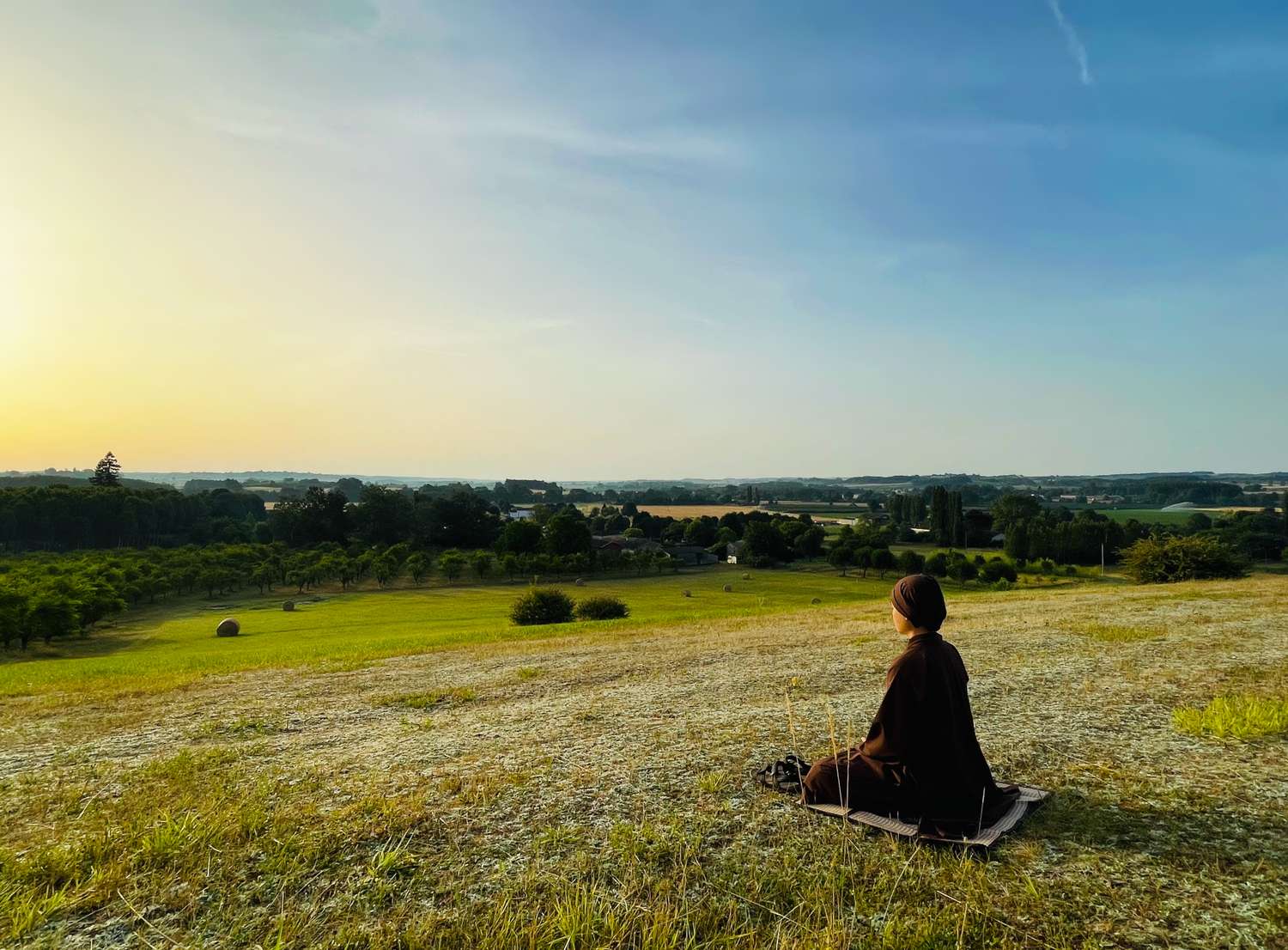
Satish Kumar: I became an activist at age 18 by joining the Gandhian movement and Vinoba Bhave. Now I’m 86 years old, and I want to remain an activist until the last breath of my life. To be an activist, you have to be an optimist. Pessimism does not lead to activism. Whether the world changes or not is not in my control, but action is in my control. I act out of love, out of compassion, out of kindness, and out of my responsibility. So, I’m an optimist. I have active hope. I act every day in the service of humanity, of planet Earth, and this for my own fulfillment and joy, because they’re all interconnected.